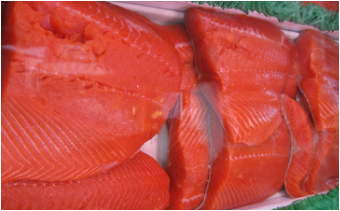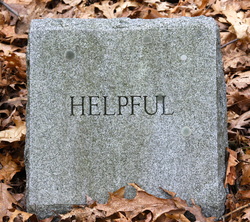 Curse you, fresh sockeye salmon--you are the root of my Costco-related stress Curse you, fresh sockeye salmon--you are the root of my Costco-related stress I have a love-hate relationship with Costco. I love the high quality and low prices of goods, especially the fresh sockeye salmon. Unfortunately, its nightmarish parking, dense crowds, and high concentration of carefree customers can drive me to the brink of insanity. Not everyone has this negative relationship with Costco, and perhaps the level of frustration it creates is unique to me—but that frustration is intense. Why I continue to patronize Costco is not the point. Assuming I will inevitably return, how can I preserve my sanity and avoid shortening my lifespan?
3 Comments
 Possibly the most confidently doubtful expression of all time (photo courtesy of Viewminder) Possibly the most confidently doubtful expression of all time (photo courtesy of Viewminder) Doubt has one purpose: to weaken belief in yourself. Unlike an inner voice that keeps you safe or an analytical mindset that weighs options and looks for improvements, doubt offers no advantages and destroys confidence. So yes, flushing away doubt will preserve your happiness and belief in yourself. Read on for three ideas to accomplish this.  Turtle, shot mid-day with Fuji camera before it broke Turtle, shot mid-day with Fuji camera before it broke We spend too much time worrying about loss, anticipating it, and sometimes taking active steps to prevent it. This costs substantial energy, or worse, may lead to suffering and diminished health, all related to an event that has not actually happened. Even if a dreaded loss did occur, how could you be certain that, over time, it would turn out for the worse? (First Responders, Emergency Medical Staff, and Suicide Counselors Exempted) Avoiding vicious dog = true survival situation Avoiding vicious dog = true survival situation Early in my career, my job tasks overwhelmed me on a daily basis, until a colleague’s remark changed my perceptions about work: “No one is going to die if you stop working for an hour to eat lunch with us.” Too many people operate in survival mode, with elevated respiration and heart rates, cortisol and adrenaline pumping, and central nervous systems on high alert. In prehistoric times, living in such a state would be adaptive if it helped you avoid being eaten by a lion, but today, living in constant survival mode is unnecessary, drains energy, compromises physical and mental health, and limits performance. It is simply not sustainable over time.  Making customers wait for this could be hazardous Making customers wait for this could be hazardous I have met too many people who possess reliable, first-hand knowledge of how to effectively get things done at work, only to be stymied in the implementation. Ironically, they are the foremost experts, but lack authority or influence, so their superiors (with inferior expertise) dismiss their opinions, their knowledge lies dormant, and everyone loses.  Nobody wants this Nobody wants this I have worked with great people who burned out because their tendency toward helping others has led them to work too hard, unappreciated, with diminishing returns. These people carry a huge burden. Even when they understand intellectually that they are exceeding their role, and that the people they are trying to assist need to step up, they still can’t bear to let them struggle, because that would feel unhelpful. Their family upbringing, culture, religion, or personality may demand that they act as supportive to others as possible, and suffer guilt if they fail to accomplish this. Fortunately, a mild tweaking of perspective may allow people with accommodating tendencies to overcome this burden and find peace.  Do I look like I have all day? Well, do I? Do I look like I have all day? Well, do I? To be overly generous with time is not a virtue. This practice compromises health and cannot be sustained. People seek my help for a variety of issues, but a majority of my clients all suffer from one common dilemma: they are too available. They often find themselves inundated with tasks and drowning in a river of requests, with no idea how they arrived at that point. Some are natural givers who freely offer their time and assistance, which makes them feel good. Unfortunately, takers always outnumber givers and are happy to squeeze as many favors as they can. Others make themselves too available due to a sense of obligation or vulnerability. They perceive their status as shaky, so the thought of declining a request feels like a risk to their job, friendship, or relationship. |
The Solutions Mine BlogAll articles written by Jason Sackett, PCC, LCSW, CEAP. Archives
July 2021
Categories |
Services |
Call310.251.2885
|
